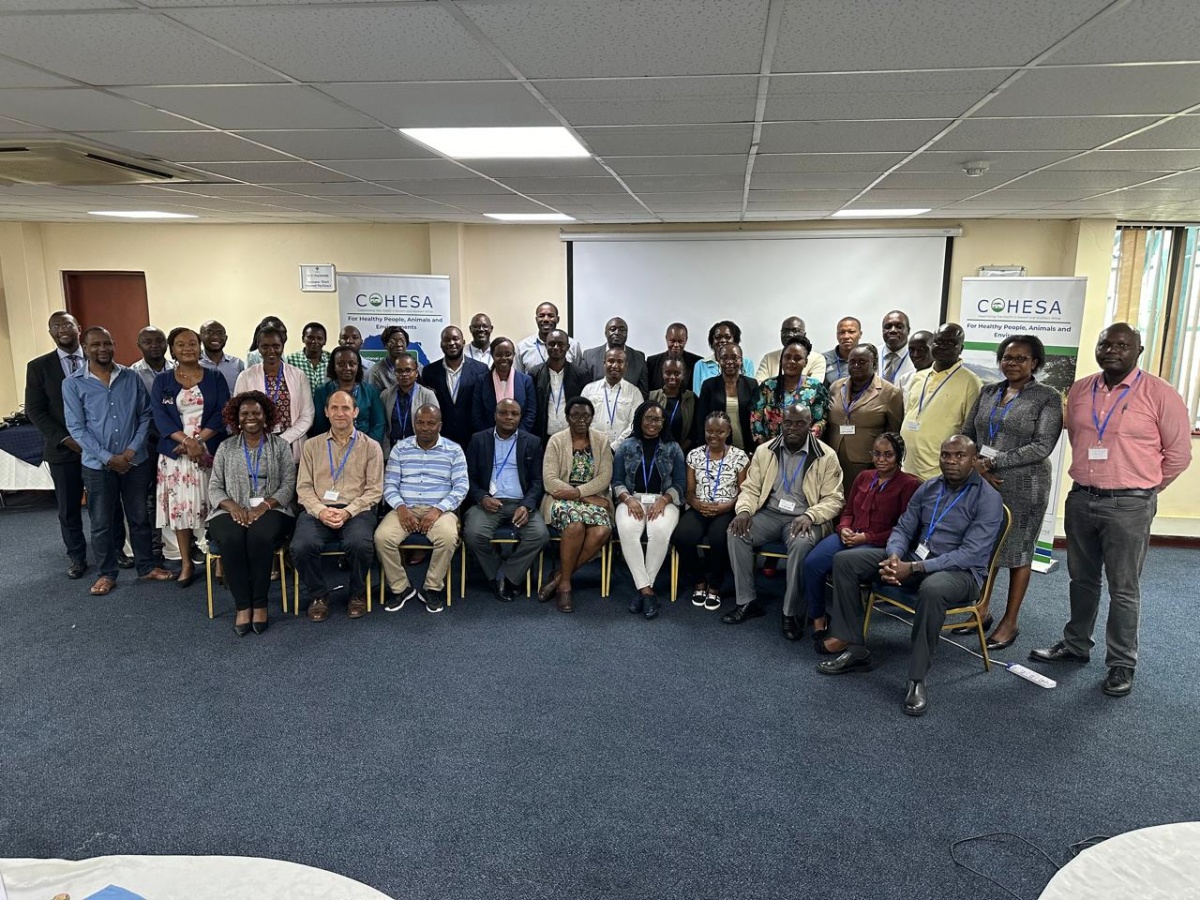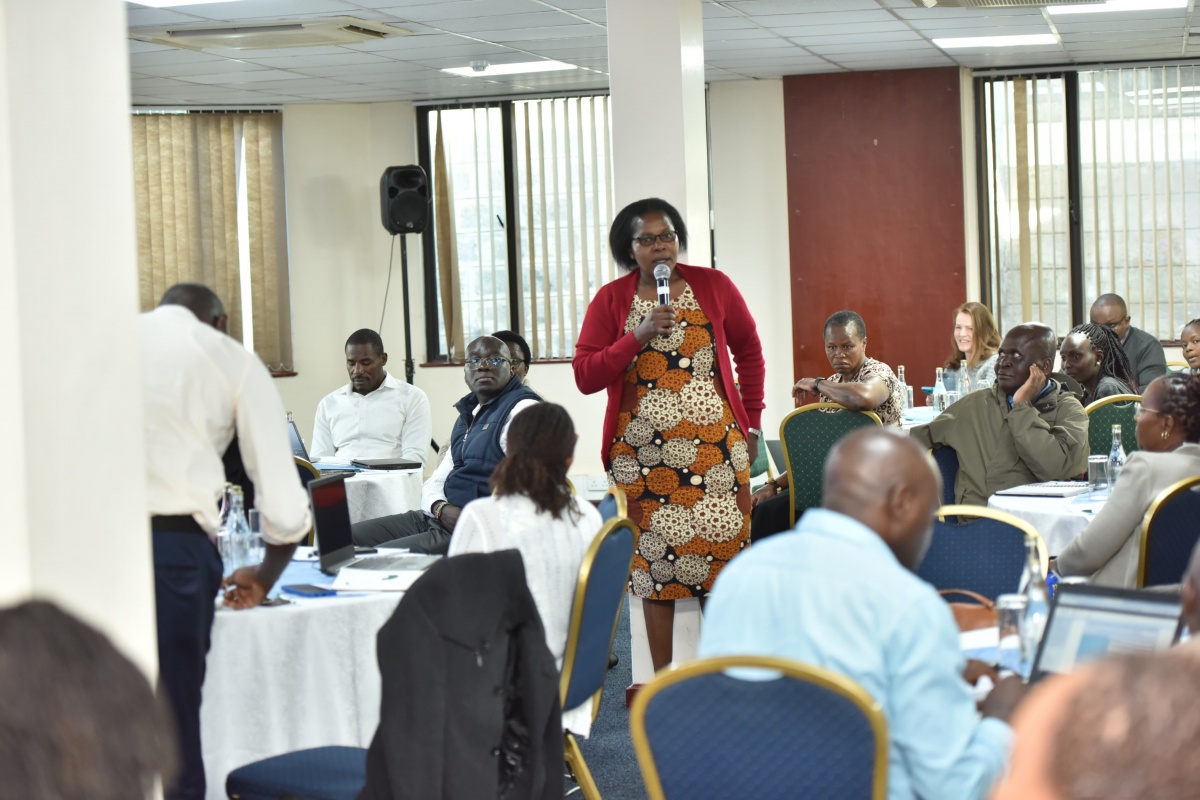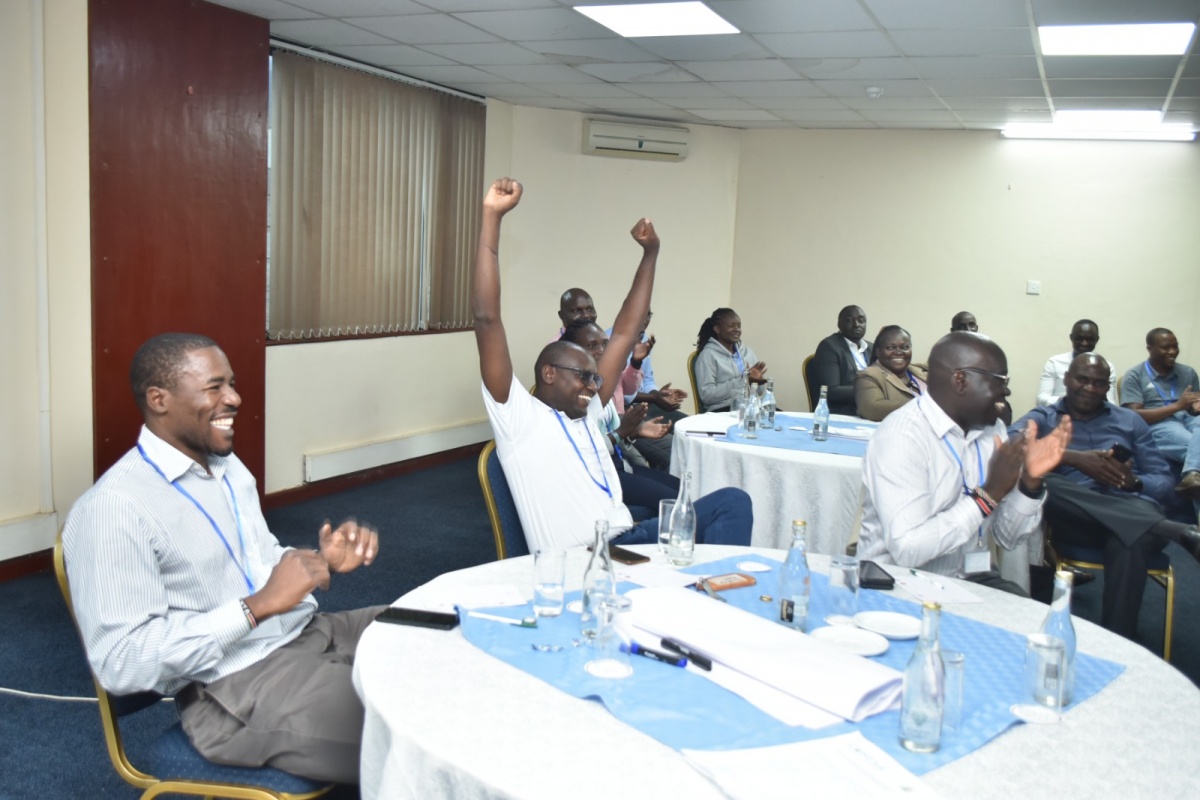COHESA-KENYA Sandpit Event Tackles One Health Challenges in Kenya
Building on past successes in Ethiopia, the Capacitating One Health in Eastern and Southern Africa (COHESA) program in Kenya recently convened researchers, mentors, and One Health practitioners for a five-day intensive sandpit event at the Jacaranda Hotel from April 16th to 19th, 2024. The "sandpit" event aimed to equip researchers with the expertise and tools needed to develop impactful One Health proposals to address pressing health concerns.

The University of Nairobi leads the COHESA project in Kenya, spearheaded by Prof. Salome Bukachi and Dr. Joshua Onono as co-lead. The initiative brings together multidisciplinary teams from various UON departments and research institutes. It collaborates with the International Livestock Research Institute, CIRAD, and ISAA to build a strong research and innovation ecosystem. This ecosystem aims to facilitate the rapid uptake and adoption of solutions for One Health (OH) issues. The program seeks to integrate the One Health concept throughout Eastern and Southern Africa (ESA), promoting the use of a systems approach to achieve the health of humans, animals, and environments.
"This collaborative environment allows participants to develop research proposals focused on addressing specific health gaps and overcoming existing challenges in Kenya's One Health landscape," said Prof. Bukachi.
The program began with introductions and an overview of COHESA. Prof. Eric Fevre, a joint appointee and professor of Veterinary Infectious Diseases, shared lessons learned from the Horn of Africa.
"One Health is a holistic approach needed to face the major challenges of our time. COHESA seeks to empower countries to confront these challenges," said Prof. Fevre.
Subsequent sessions delved deeper into One Health concepts. Dr. Kristina Roesel provided insightful presentations on the core principles of One Health research, existing gaps in the field, and the concerning rise of Antimicrobial Resistance (AMR) across human, animal, and environmental spheres. One Health is a holistic approach that aims to sustainably balance and optimize the health of people, animals, and ecosystems. It recognizes the interconnectedness of human health, domestic and wild animals, plants, and the wider environment.
Prof. Omu Anzala, a virologist from the KAVI Institute of Clinical Research at UoN, shared practical One Health solutions for infectious diseases. Additionally, Prof. Lilian Omutoko provided crucial insights on navigating the ethical considerations of One Health research within the Kenyan context. The importance of collaboration beyond academia was emphasized.
The core of the event focused on empowering participants to translate theory into practical solutions. Dr. Lilian Waiboci, a biochemist, senior lecturer at UoN, and chair of the Women in One Health network, and Prof. Catherine Kunyanga, Associate dean and professor of the Faculty of Agriculture, led sessions dedicated to proposal development. These sessions equipped researchers with the skills to craft compelling funding proposals. Interactive group work sessions allowed participants to refine their research questions, methodologies, and budgets, receiving valuable peer feedback throughout the process.

resistance and exploring avenues for sustainable health optimization led by Dr. Lilian Waiboci.
The week-long intensive training culminated in proposal pitching, where six teams showcased their innovative solutions to a funding panel. Proposals ranged from point-of-care tests for tick-borne diseases to digital biosecurity plans for poultry farmers, highlighting various strategies to combat pressing health challenges.
Team "TICK-BORNE RICKETTSIA" emerged victorious with their point-of-care test, a game-changer for diagnosing this tick-borne disease in Kenyan pastoral communities. Team One presented a similar concept, a point-of-care test for tick-borne illnesses, underscoring the critical need for rapid diagnostics in this area. Meanwhile, Team Biosmart championed empowering poultry farmers in Kajiado County with a digital biosecurity plan to combat Anti-Microbial use (AMU) and Anti-microbial Resistance (AMR) and broiler mortality. Their solution incorporated demonstration farms and peer learning for wider impact.

Researchers from Masinde Muliro University brought a two-pronged attack on AMR. Team three proposed integrating Hazard Analysis and Critical Control Points (HACCP) protocols into cattle farm management, while Team Four focused on empowering responsible antibiotic use in poultry farms through a farm-level stewardship program. Team Five, Poison Breakers, offered a unique solution – a "climate-smart oven" that sterilizes manure, aiming to break the cycle of AMR transmission from farms to food. Team Six offered a more direct approach, proposing a phage cocktail to combat antibiotic-resistant cholera, showcasing the diverse approaches researchers are taking to tackle One Health challenges in Kenya.
The "sandpit" concept, inspired by the HORN project, proved to be an effective method for stimulating innovation. The success of the Kenya Sandpit Event adds Kenya to the growing list of countries adopting this innovative approach to tackling crucial health challenges.
